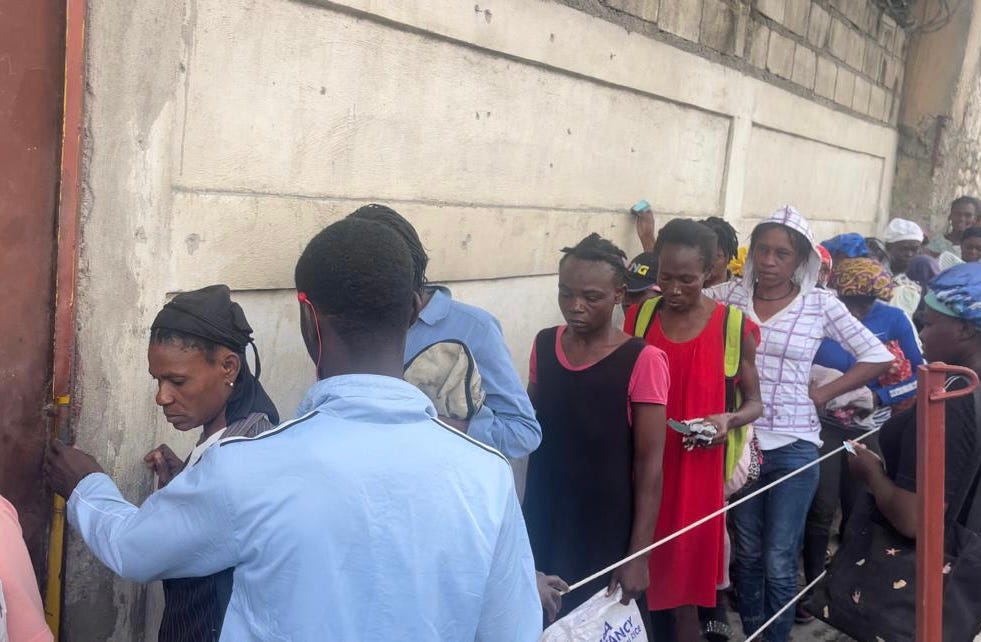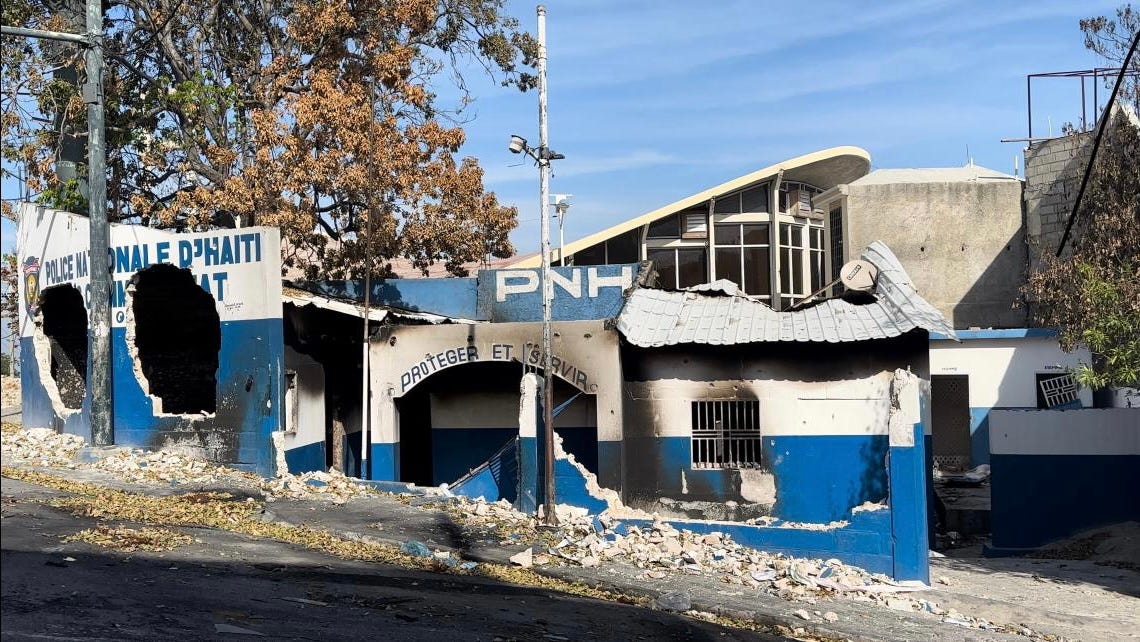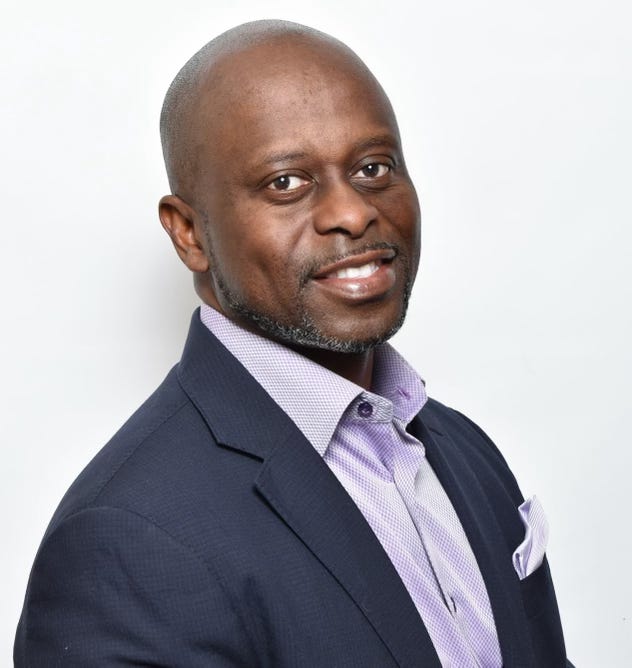“We really have to intensify how we provide help”
Watson Escarment, with the Good Samaritan Haitian Alliance Church in Lawrenceville, speaks to 285 South about the unfolding crisis in Haiti, and its impact on Metro Atlanta.
For months, the humanitarian and security crisis in Haiti has been on the minds of thousands of Haitians who live in Metro Atlanta. About 1.5 million people in Haiti are on the verge of famine, and more than 4 million require food aid, sometimes eating only once a day or nothing at all, according to the World Food Programme. Port-au-Prince, the country’s capital, is in the grip of pervasive gang violence, and the situation is deteriorating in other parts of the country. More than 1500 people have been killed in 2023 alone.
Many Haitians have been fleeing if they can and an increasing number have been arriving in Atlanta looking for refuge, as the crisis has intensified.
The recent escalation of violence and level of anarchy in Haiti comes as no surprise to anyone who’s been paying attention, said Watson Escarment, a Haitian-American who migrated to Florida as a kid and now lives in Metro Atlanta. But still, seeing it all unfold is heartbreaking, he said. “I don’t remember Haiti being in this state ever.”
Watson lives in Buford with his wife and two of his three kids (the third lives on campus at Georgia Tech). He was recently joined by two relatives, who he helped bring over from Haiti just a few months ago, through the Biden Administration's humanitarian parole program, which went into effect in January 2023.
He is the Chief Operating Officer of the Good Samaritan Haitian Alliance Church in Lawrenceville. Among the largest Haitian churches in Metro Atlanta, it serves a Haitian community that has grown from 17,000 to nearly 27,000 in the last decade. He is also the co-founder of The Samaritan Heart’s Foundation, a nonprofit that supports people who have recently arrived from Haiti with everything from housing to utility assistance to transportation.
285 South spoke to Watson this week about what the past few months have been like for him and other members of Atlanta’s Haitian community.
This interview has been edited for clarity.
Can you describe your connection to Haiti?
I was born in Haiti. But I grew up in Miami, primarily the South Florida area. And it was not until the 2010 earthquake, that I really reconnected to Haiti, physically, and also on a more emotional level.
And so that started me on a journey, to really be of service to not only Haitians living in Haiti, but also those living abroad wherever they may be.
What has it been like for you to see events unfold in Haiti over the last several months?
It's been very difficult. In the country, those who are experiencing it, the trauma that they're experiencing, and we hear these stories often through our church, to those who have family members there. It's been gut-wrenching for us as a community to really see the country spiraling.
For example, those who have family there, that have not been able to visit or care for them. [They’re] not able to even send funds to them in a consistent manner, and not able to physically travel because there's been a shutdown all of the commercial airline flights to Haiti in the past month. And so that's created hardship.
And obviously, it's created an economic downturn for the country. So it's just all of these things combined with many others, it's been really hard on the community to process what's going on.
How has the situation impacted your family members in Haiti? How have they been doing? What are you hearing from them?
One of the few silver linings is the humanitarian parole program. So I've been able to sponsor a couple of family members. And so they are really fresh from the situation. They're more in contact with their family members, which is my extended family. So I'm hearing more and more from them, because of that connection. It's hard for people to feed themselves, my family lives in the countryside. the entire country is impacted. They're not spared from any of this. They're experiencing economic hardship, [struggling to] to care for themselves on a day-to-day basis, in the basic necessities of food, water and shelter.
Have you been able to send funds back to them?
I have, but it's very unreliable. For a while, if you sent funds, the people in Haiti received the funds in Haitian gourde. They don't receive it in American dollars because of the shortage of dollars in the country. And so if you send that money, [it] immediately gets devalued on top of what you're sending. People are standing in long lines waiting for hours, even those very few who have bank accounts. If you do a direct transfer from a US the banks may not even be open for days at a time due to the instability and insecurity in the country.
I know in the last few years, there's been a lot of migration from Haiti, and the church has been supporting some of the people who've arrived here. What have been things been in the last six months or so, are you still seeing people coming? Is the church and samaritan’s heart supporting them?
As I mentioned, my relatives came through the humanitarian parole program. The last two years, there's been an influx of those coming through the US Mexican border. And so really, our efforts intensified.
So the impact for us is, we really have to intensify how we provide help. One of the things that we've done, this was created organically, the Haitian community rallying together, we hold monthly seminars and information sessions [at] different churches, from Austell to Atlanta to Lawrenceville. Every session probably has about 300 plus individuals. We help them complete paperwork to help get a job and get a work permit. And we also connect them with local lawyers, because some are seeking asylum.
One of the things that we've been doing is we ramped up our housing efforts. [The] church purchased a home, specifically for this purpose. And the church, also rented a home for those in need of housing. We provide transportation for those who are able to legally work. There's those who need health care. So we have individuals that attend church, nurses that help them go to their appointment, who will translate for them.
So we really rally around this need, because it's just growing, it's continuing to grow. And it's not letting up.
What is the most challenging part about helping people navigate this entire process of starting their lives here?
One of the biggest challenges is the lack of institutional aid, specifically, in Georgia. They're here as law abiding citizens and they want to integrate, and they're fleeing a country that's in turmoil, that's at war. There's a lack of resources and a lack of focus on the migrant communities throughout Metro Atlanta, and really, throughout the country. There's some states that do a better job at it than others. But we can't continue to politicize these things and make it about politics, because these individuals are here, and they will continue to come here. There's really not a lot of local, statewide and national services set up for them. So we deal with that the best we can [with] our own local resources, tapping into individuals, churches, local communities, and other local organizations that can help. That's only a drop in the bucket of what could be done and should be done.
What gives you hope right now?
I think what gives me hope is when I go and see the effort that others are doing, and I visit other local, migrant communities, and I see the passion with which people are serving those in need, and providing the care and doing it enthusiastically. The way that they're giving up themselves and giving up their time to serve their fellow humans.
How have your two relatives been doing - the ones who recently came here from Haiti?
I'm expecting [them] to get their social security numbers any day now. That also brings us hope. Every time I talk to them, the joy that they now have…when they hear the news and the despair that's [in Haiti], and they contrast that against where they were, versus where they are now… Even [though] everything is not there for them, there's a roadmap that we're helping to build.
They’re able to plan out a future. They can say, hey, when I work, I want to buy a car, I want to learn how to drive, I want to do this, I want to do that. So right now they're planning out all the things they're going to do once they're able to go get a job ,once they're able to move about without depending on a ride from myself or my wife. So they have that sparkle, that hope.
Is there anything else you think people should know about the situation or what people in the Haitian community do right now?
I just want people to realize that the people that are here, are here to really integrate into society. I want people to know that they're here, they're suffering, they have children, they have lives that have been uprooted. At the base of it all, we're all human. So I want people to really think about it from that basic, deep-rooted level - that these individuals are no different than they are.
For people who want to help or support, what can they do?
There's various ways to help, through The Samaritan’s Heart Foundation and Good Samaritan Haitian Alliance Church. They can donate to the work that we do and also email us, or they can contact me directly at watson.escarment@gshac.org.





